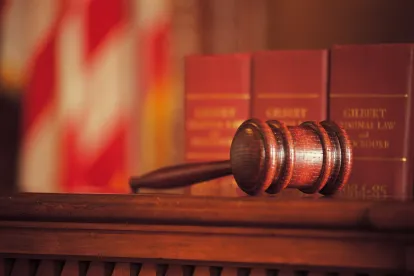Addressing the procedural aspects of making factual assertions during an inter partes review (IPR), the US Court of Appeals for the Federal Circuit vacated and remanded the Patent Trial and Appeal Board’s (PTAB’s or Board’s) invalidity judgment as procedurally improper for relying upon certain factual assertions introduced for the first time during oral arguments. Dell Inc. v. Acceleron, LLC, Case No. 15-1513 (Fed. Cir., Mar. 15, 2016) (Taranto, J).
This case relates to hot-swappable computer network components involving “caddies” disposed beneath power supplies. Although Dell advanced several different arguments throughout the IPR proceedings, one argument in particular—involving whether a reference’s structure met the “caddies” requirement—came up only in oral arguments. The Board based its final written decision on materials presented in Dell’s oral argument slides and found anticipation of the claim in question. Acceleron appealed to the Federal Circuit, challenging, among other things, the Board’s reliance on a basis first raised during the oral argument as procedurally improper.
The Federal Circuit concluded that the Board denied Acceleron notice and a fair opportunity to respond to the newly raised basis of cancellation. According to the Federal Circuit, the Administrative Procedure Act
. . . imposes particular requirements on the [US Patent and Trademark Office]. The agency must “timely inform []” the patent owner of “the matters of fact and law asserted,” 5 USC § 554(b)(3), must provide “all interested parties opportunity for the submission and consideration of facts [and] arguments . . . [and] hearing and decision on notice,” id. § 554(c), and must allow “a party . . . to submit rebuttal evidence . . . as may be required for a full and true disclosure of the facts.”
The Court therefore concluded:
In this case, the Board denied Acceleron its procedural rights by relying in its decision on a factual assertion introduced into the proceeding only at oral argument, after Acceleron could meaningfully respond. . . . The oral argument presented no opportunity for Acceleron to supply evidence, whether expert or lay or documentary evidence . . . [y]et the Board relied on that basis alone for an essential part of its anticipation ground of decision.
The Federal Circuit vacated the cancellation with respect to the claim at issue and remanded back to the Board for reconsideration as appropriate.



 />i
/>i

